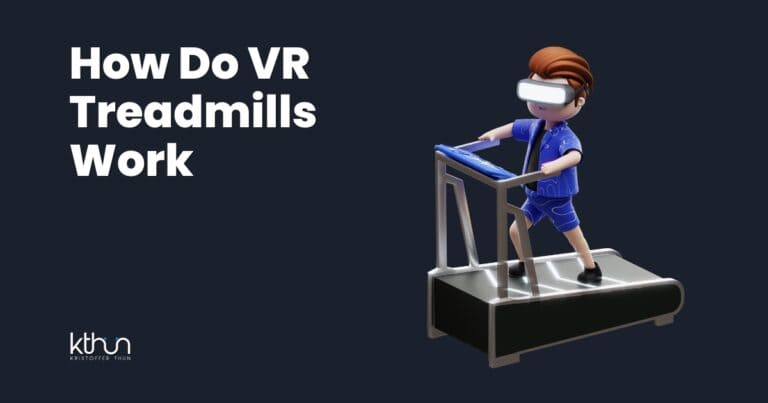The IT field is an increasingly popular and rewarding career choice, filled to the brim with opportunities for growth and development. As technology advances at breakneck speed, the demand for experienced IT professionals is skyrocketing.
I’m excited to share my insights from over a decade of navigating the ever-changing IT landscape in this blog post.
From the ins and outs of day-to-day operations to the strategic thinking that fuels the industry’s progression, I’ll be delving into the many aspects of a career in IT that can make or break your success.
If you’re looking not just to survive but thrive in the tech sector, understanding these fundamental components can pave the way to carving out your successful career within IT.
So, without further ado, let’s jump right in!
I partner with awesome companies that offer products that help my readers achieve their goals! If you purchase through my partner links, I get paid for the referral at no additional cost! For more information, visit my disclosure page.
5 Benefits of Working in IT
If you’re considering a career in the IT field, you’ll be happy to know that there are numerous benefits associated with this field.
1. Job Security and High Salaries
Skilled IT professionals will always be in high demand, offering job security and competitive salaries. There is always a possibility to start your own business as well.
2. Opportunities for Growth and Advancement
Continuous learning is key to success in any IT role, with endless opportunities for growth and advancement.
3. Diverse Range of Industries
Your skills can be applied across various industries, giving you plenty of options when choosing where you’d like to work.
4. Remote Work Possibilities
Many companies now where software developers offer flexible schedules allowing employees to work remotely if they wish.
5. Creativity & Problem-Solving
IT roles offer an exciting chance to gain experience, flex your creative abilities, and think unconventionally.
Embarking on a career in computer science and information technology can be incredibly rewarding, offering job security, competitive salaries, diverse industries to work within previous experience, remote work possibilities, and growth opportunities.
What You Need To Know Working In IT

Get started in IT by understanding the basics of computer engineering and the different roles available, from software engineers and web developers to cybersecurity analysts.
Types of IT jobs
- Software Developer: Design, code, test, and maintain software applications.
- Data Analyst: Analyze data using various tools to provide insights for decision-making processes.
- Tech Support Specialist: Assist users with troubleshooting technical issues related to hardware or software.
- Cybersecurity Analyst: Protect an organization’s digital assets by identifying vulnerabilities and implementing security measures.
- UX Designer: They design products, systems, or services to ensure they offer an efficient, effective, and enjoyable experience for users.
- IT Project Manager: IT Project Managers oversee all aspects of any technology project in a company, from planning to execution and final rollout.
- Web Developer: These professionals design and create websites, focusing on the look and feel of the website, its performance, and its functionality.
Problem-solving challenging scenarios, staying up-to-date on advances in the IT sector, and cooperating with colleagues to reach objectives are all part of succeeding as an IT manager and an IT professional.
Developing Your Skillset for IT Success

Want to succeed in IT? You need a strong background and diverse skills that combine technical expertise and soft abilities.
Focus your learning efforts on the most valuable skills to improve your chances of success.
Learn more than just programming languages. Learn about different software domains. Get to know cloud computing technologies like AWS and Azure.
Get familiar with project management methodologies like Agile and Scrum. Learn about software development automation tools like Ansible and Jenkins.
Soft skills are just as important, so don’t underestimate the value of communication abilities, time-management techniques, communication skills, and problem-solving aptitude.
Technical Skills:
- Programming and Software Development: A versatile programming language (Python) used in data analysis, machine learning, and web development. Also, HTML/CSS for web development.
- Cloud Computing: Understanding cloud platforms like AWS or Azure is crucial as more businesses move their infrastructure online.
- DevOps: Understanding DevOps practices, tools (e.g., Git, Jenkins, Docker), and methodologies for streamlining software development, deployment, and collaboration processes, I would say, are highly desirable.
- Cybersecurity: Protecting sensitive data from breaches requires specialized knowledge of security protocols and best practices.
- Certifications: Boost your credibility and demonstrate commitment towards professional growth by earning relevant certifications like CompTIA A+, Cisco CCNA, Microsoft MCSE/MCSD, or (ISC)² CISSP.
Soft Skills:
- Problem-solving: Quickly analyzing complex issues and finding effective solutions are vital in IT roles.
- Communication: Conveying ideas with team members, clients, or stakeholders helps ensure projects run smoothly.
- Time management: Balancing multiple tasks and meeting deadlines is crucial in fast-paced IT environments.
- Adaptability: Being open to change and quickly learning new skills will keep you ahead of the curve in this rapidly evolving industry.
- Creativity: IT is a rapidly evolving field, and thinking creatively can help you develop new ideas or innovative solutions. Teams and managers always appreciate new ways of doing things!
- Collaboration and Teamwork: IT projects often involve working with others, so working effectively as part of a team is crucial.
- Continuous Learning: Stay updated with the latest technological developments by subscribing to industry newsletters, attending webinars and conferences, or enrolling in online courses from Coursera, Udemy, and LinkedIn Learning.
- Mentorship: Seek guidance from experienced professionals who can provide valuable insights into industry trends and best practices by joining online forums or local meetup groups focused on IT topics.
Remember, a successful IT career requires technical expertise and well-rounded soft skills. Focus on developing these abilities to prepare for the challenges of this dynamic industry.
Understanding the Pros and Cons of Working in IT
Working in IT may seem appealing, yet there are some drawbacks.
The Advantages
- High demand: IT professionals are always in high demand, so job security is strong.
- Lucrative salaries: IT professionals often enjoy higher-than-average salaries.
- Variety of roles: As mentioned before, the IT sector offers a wide range of positions, allowing individuals with different interests and skill sets to find fulfilling careers.
- Growth opportunities: Continuous technological advancements lead to exciting growth opportunities throughout an IT professional’s career.
- Flexibility: Possibility of remote work, varying working hours depending on the role; you can decide on your work schedule.
The Disadvantages
- Potentially long hours: Balancing work-life can be challenging at times.
- Stress levels: The fast-paced nature of the industry can lead to heightened stress levels.
- Constantly evolving landscape: IT professionals must continuously update their skills and knowledge to stay relevant.
- Competition: Increased competition among job seekers may require additional certifications or specialized expertise.
- Physical health: It is also a sedentary job and can have a negative impact on health if you don’t exercise.
Weighing the advantages and disadvantages will assist you in a better understanding and deciding your occupational trajectory.
Leveraging Technology for Maximum Efficiency
Stay ahead of the curve by using technology to increase efficiency and productivity, such as AI tools.
Embrace Automation Tools
Save time and effort by streamlining repetitive tasks with automation tools like Zapier, IFTTT, or custom scripts.
Use Project Management Software
Stay organized and on track with deadlines using user-friendly project management and software products like Trello, Asana, or Basecamp.
Stay Connected through Collaboration Tools
Effective communication is crucial, especially for remote teams. Collaborative platforms and systems like Slack, Microsoft Teams, or Google Workspace facilitate seamless interaction and file sharing.
Keep Learning with Online Resources
Stay informed about industry developments by leveraging online resources such as webinars, podcasts, blogs, and Coursera, Udemy, or LinkedIn Learning courses.
Optimize Your Workspace
Enhance productivity with a well-organized computer workspace and necessary computer hardware like dual monitors or ergonomic keyboards. Declutter your digital environment by organizing files and folders to streamline tasks.
Incorporating these strategies into your routine will boost productivity and contribute to overall success in the IT industry.
Stay adaptable and open-minded to your user needs to make the most of evolving technology.
Navigating the Challenges of Working in IT

Working in IT requires combining technical knowledge and soft skills, so invest time in improving both.
Stay up-to-date on industry trends by following reputable tech news sources like TechRepublic.
Manage workload effectively using time management tools and prioritizing tasks based on urgency and importance.
Develop effective conflict resolution techniques to maintain positive working relationships.
Stay informed about the latest cyber security and measures to protect your organization’s data.
Commit to lifelong learning by taking advantage of online courses, certifications, or workshops.
- Stay Up-to-Date with Digital Developments.
Don’t get left behind in the fast-paced IT world – stay informed with the latest digital trends and developments relevant to your field.
- Subscribe to Industry Newsletters and Blogs.
Get your daily dose of tech news by subscribing to industry newsletters and blogs like TechRepublic, The Next Web, and Wired.
- Attend Conferences and Networking Events.
Attend gatherings such as Google I/O Developer Conference, Microsoft Ignite, or CES to connect with other experts and stay informed on the newest technological innovations.
- Join Online Communities & Social Media Groups.
Engage with online communities like Reddit’s SysAdmin, LinkedIn’s Information Technology group, and Spiceworks IT Community to learn from fellow professionals and expand your network.
- Take Advantage of Online Courses and Certifications.
Stay abreast of the most up-to-date tech advancements by enrolling in online courses and certifications from reputable sources such as Coursera, Udemy, and Pluralsight.
Navigating Your Way Through the IT Job Market
Want to land a job search for your dream IT job? Here are some tips:
- Build Valuable Connections.
Networking is key – attend events, join online groups, and connect with potential employers on LinkedIn.
- Create an Impressive Resume & Online Presence.
Your resume should highlight your skills and accomplishments, and building a strong personal brand online can attract employers.
- Hone Your Skills Through Continuous Learning.
Stay ahead by continuously learning new technologies and improving existing skills with certifications like CompTIA A+, Cisco CCNA, and Microsoft.
- Tailor Your Application Materials.
Customize each job description and application by highlighting how your skills and experience align with the employer and job description’s requirements.
- Prepare for Technical Interviews.
Be ready to showcase your expertise in real-time with platforms like HackerRank. Since being a consultant, I have to do interviews for each assignment which quickly adds up to many interviews. I learned that it’s vitally important to be well-prepared for interviews.
You can be on the path to a prosperous IT career with hard work and commitment.
Is the IT Industry a Good Career Path?
Before diving into the information systems and IT job, evaluate if an IT career is right for you.
Consider job satisfaction, growth potential, and work-life balance.
Job Satisfaction in IT
Research shows that IT professionals report high levels of job satisfaction due to intellectual challenges and opportunities for continuous learning software development.
Growth Potential within the Industry
Given the Bureau of Labor Statistics’ projection of a rapid growth rate for IT-related roles, Information Technology is an attractive choice for long-term job security and work-life balance.
Work-Life Balance in Information Technology Roles
Many companies offer flexible schedules, hybrid work, or remote work options to help alleviate stress, especially if you have a family.
Determining If It’s Right For You:
- Evaluate your interests: Are you passionate about technology? Do you enjoy problem-solving and critical thinking?
- Analyze your skills: Assess your current skill set – do you have strong technical abilities or are you willing to learn new technologies?
- Gauge your stress tolerance: Can you handle high-pressure situations common within this industry?
- Spending a lot of time indoors: Can you handle many hours in front of a screen and meetings?
An IT career may be a great fit if these factors align with your goals and personality.
Realizing success in IT necessitates unwavering commitment, perpetual education, and the ability to adjust quickly to new advancements.
To Sum Up
It is where business and technology meet, making it an exciting and rewarding career path with job security, high salaries, and growth opportunities.
Working in IT can be a challenging yet rewarding career path, but it’s essential to develop your skillset and stay up-to-date with digital developments continuously.
Success in IT requires skills like problem-solving, communication, and adaptability, but beware of burnout and the fast-paced nature of the industry.






